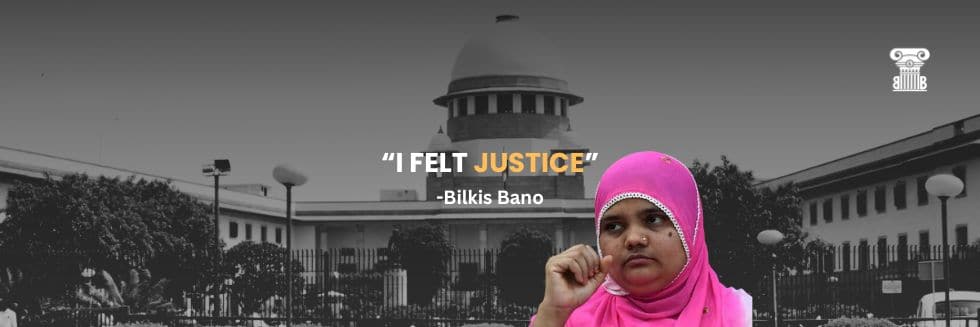In a recent development, the Supreme Court has overturned the remission granted to the 11 life convicts in the Bilkis Bano rape case, also known as Bilkis Yakub Rasool v. Union of India & Ors. (2022). The remission was granted by the State of Gujarat under its 1992 remission policy on 10th August 2023. Prior to the remission order, a division bench of the Supreme Court had ruled that the State of Gujarat was the appropriate government under the Code of Criminal Procedure, 1973 (CrPC) to grant the remission.
Understanding Remission under the Code of Criminal Procedure, 1973 (CrPC)
Remission is a legal principle that allows for the reduction or mitigation of a punishment imposed by the court. Section 432 of the CrPC empowers the state government or the central government, depending on the nature of the offence, to suspend or remit the sentence of a convicted person. This power is exercised based on several factors, including the nature of the offence, the character of the offender, and the circumstances of the case. The discretion conferred under Section 432 is not absolute.
Section 433 of the CrPC allows the appropriate government to substitute a less severe punishment for the one originally imposed. The court can commute sentences of death, imprisonment for life, rigorous imprisonment, and fine.
Supreme Court’s Views on Remission in Bilkis Bano Case
The petitioner argued that the power to grant remission was exercised without due consideration and that the power was exercised by the Governor based on extraneous considerations and even without the aid and advice of the Government, namely, the concerned Minister.
Liberty is a fundamental right of every human being, and any attempt to diminish it would be forcefully resisted. Similarly, the rehabilitation and social reconstruction of a life convict is a paramount objective of punishment in a welfare State. The State has the dual responsibility of protecting society from the convict and rehabilitating the offender.
The remission policy is a process of rehabilitating a person who has engaged in criminal activities under certain circumstances and needs to be rehabilitated. Thus, punishment should not be seen as the end but only as a means to an end. Factors such as the state of mind of the convict when the offence was committed are taken into account.
However, the court ruled that the Government of the State of Gujarat had no jurisdiction to entertain the prayers seeking remission of 11 convicts as it was not the appropriate Government within the meaning of Section 432 (7) read with Section 432 (1) and (2) of the CrPC. Consequently, the remission orders dated 10th August 2022 made in favour of 11 convicts were declared illegal, vitiated, and therefore, quashed.
